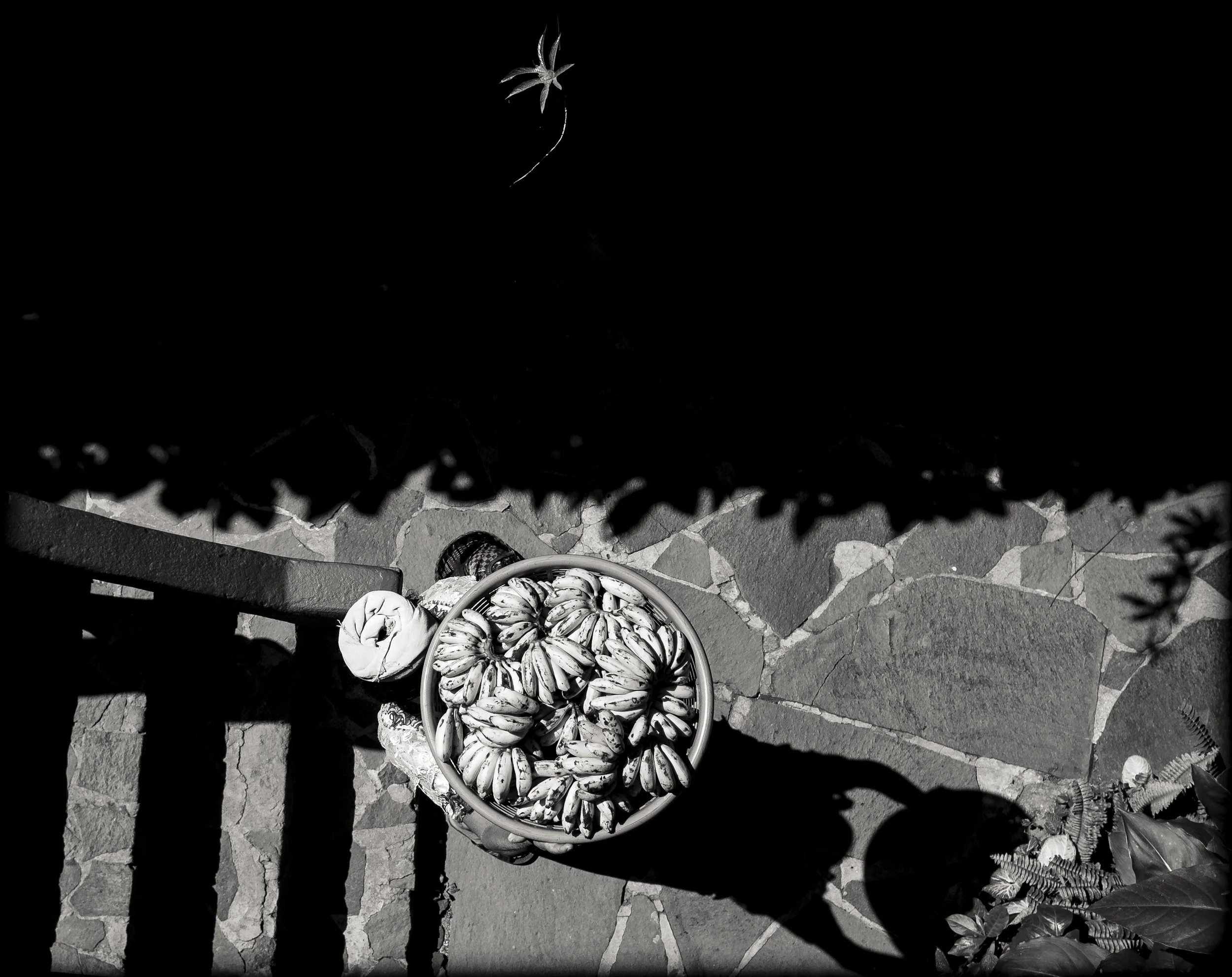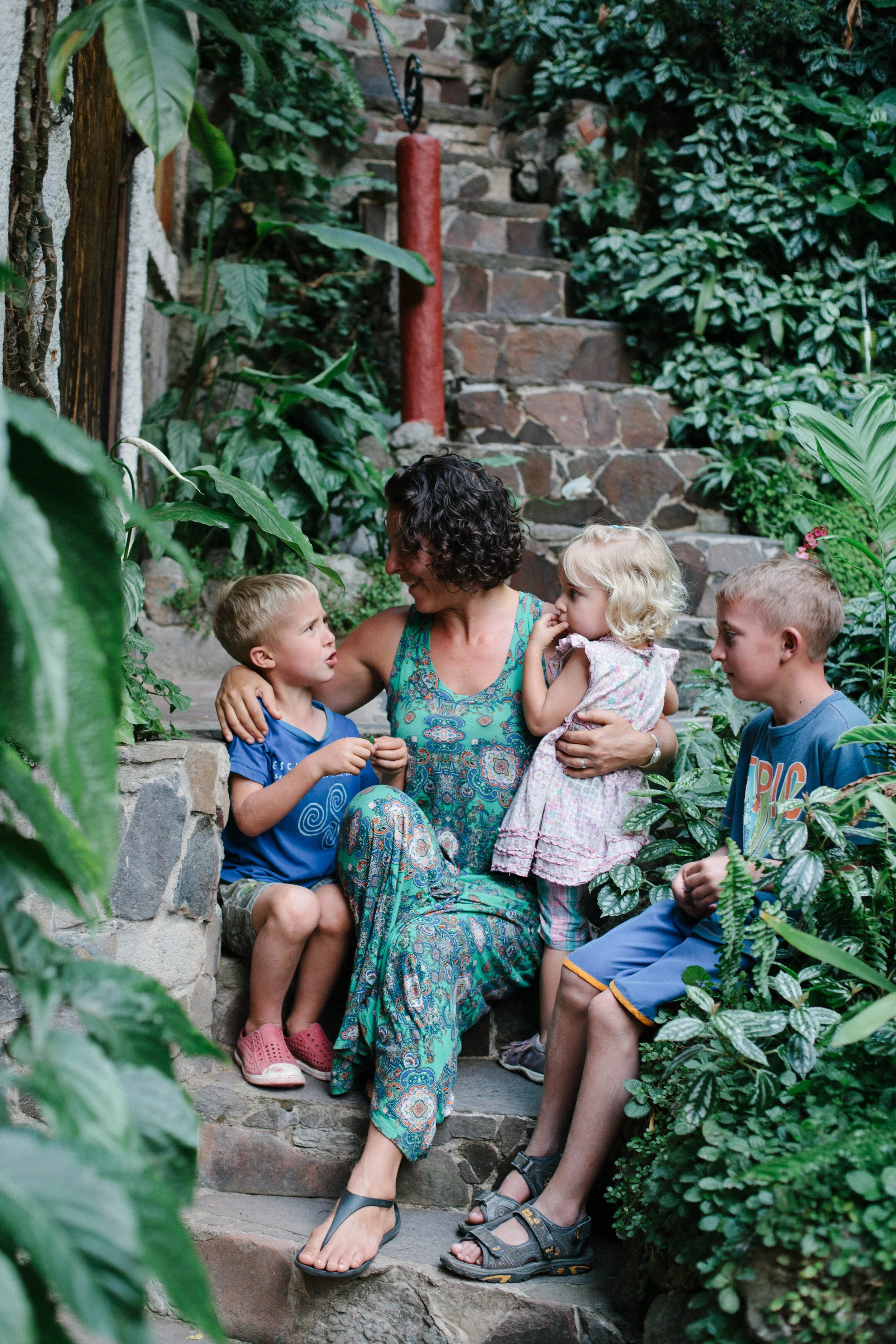The Banana Story: Intergenerational Patterns, Competition, and The Feeling of Lacking
This is one of those dynamics that we often notice and feel something about but don’t usually dig deeper into. But when you feel there is more to a story and there is a lingering discomfort, there is usually something juicy to harvest.
A client was visiting his elderly parents in his childhood home, a trip he makes once or twice a year. While eating a banana, realized he was quite hungry and reached for a second and then a third. When he reached for the third banana, his father said “Aren’t you going to leave me any?” The son could see the familiar look on his father’s face, it said “what about me?” The father was not feeling generous with his son. It was an old pattern.
The son responded that there was still one left.
The client brought this story to me. I already knew a bit of the backstory: he had previously talked about a dynamic where his wife often complained about his tendency to prioritize his own needs, which occasionally bothered him but mostly didn't. His wife said that he often looked out for his interests first, that his need feels more important than anyone else’s. It often wouldn’t cross his mind to save some of the last delicacy for his wife or children. A kind of selfishness and feeling of lack would come over him. Apologies and acts of generosity were challenging for him. All this felt as if it happened to him, he was a passive participant.
As he recounted the banana story, I could feel the sadness of the little boy inside him. He shared that he had always known his dad was more interested in himself and his own needs. And children want to feel (as do partners in attachment relationships) that we will come first. Secure attachment is rooted in the belief that "Baby, the world stops for me when you need me!" (as John Gottman says it). We don’t always need to come first, but we need to feel that when we really need our parents or partners, they will prioritize us!
So, how does unraveling this story become helpful and why does it interest me?
I noticed three key aspects of this dynamic:
Firstly, I felt intense compassion, imagining my client as a confused little boy, who feels their parent as withholding. Instead of being seen as someone to protect, nurture, and give to, the parent views the child as a competitor. The child digests this ambivalence as "my parent doesn't care about me," which creates a competitive model of the world inside the child. The child starts competing with their caregiver for resources, feeling the need to fend for themselves and defend their interests. The father's “me first” attitude shapes how the child lives in the world, leading to a feeling of lack and missing out on intuitive generosity.
Second, this dynamic then manifests in my client's adult relationships, even with people who do not share that same childhood story. It triggers a “ME, ME, ME, I must take care of me” response in others. The wife reacts with defensiveness, experiencing the same protective and defensive feelings. Almost anyone encountering this lack of generosity automatically begins to protect themselves and gets entangled in the same cycle.
Interestingly, this mentality even invites new individuals into the same dynamic, regardless of their personal history. This cycle sustains and perpetuates itself: when person A feels that person B isn't willing to give to them, person A instinctively protects themselves, reaffirming person B's perception of being taken from. This, in turn, makes person B hold onto their resources more tightly, perceiving person A as ungenerous, leading to defensiveness and the need to fight for what is theirs.
Thirdly, this mindset inevitably generates a feeling of lack. When it is “me versus you,” there is never enough. The competitive model insists that each person must fight for their own share. When you're competing for resources, you will always feel like you don't have enough because it's “me versus you.” There is no us. There is no ours. Everything must be divided. There is an essential feeling of lack.
These intergenerational complexes and old stories translate into behavior patterns and ways of thinking. The son was literally caught in a loop that seems beyond his control.
Family visits can serve as moments when we are offered a big, microscopic, reflective mirror. We can either view the things that come up as annoying or or see them as opportunities for our personal growth work. The places we evolve most relationally are with our parents, children, partners, and the people who we want to expose ourselves to. Instead of getting annoyed with the outside world, is there anything you can learn?
Are you interested in working on your personal development? Are you looking for a life coach or a life consultant? Are you feeling stagnant? Do you want to jumpstart change?
My transformational approach is a process where awareness, alignment, and action work together as catalysts to create momentum for change.
*Awareness is knowing what you genuinely want and need.
*Alignment is the symmetry between our values and our actions. It means our inner and outer worlds match.
*Action is when you are conscious that what you say, do and think are in harmony with your values.
Together we build an understanding of what you want to accomplish, and delve deeply into building awareness around any thoughts and assumptions that you may already have. To truly transform your life, I will empower you to rethink what’s possible for you.
__
Learn more about my approach to life consulting and relationship coaching here or get in touch for your free 30-minute consultation here! Don’t forget to follow along @LilyManne on social for more regular updates!


